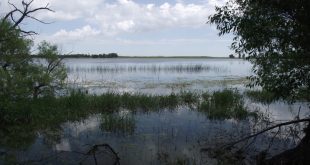It will undoubtedly be among the most stunning sights you have ever witnessed. It has been labeled as one of the most awe-inspiring events in nature, and it’s coming!
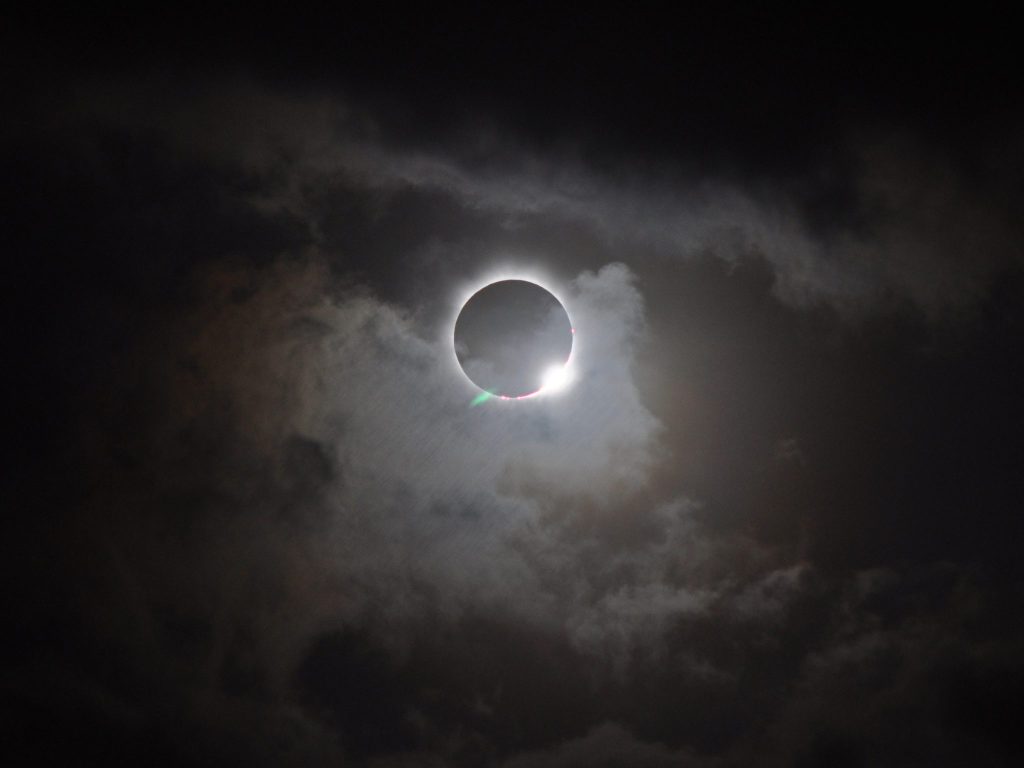
For the first time in 26 years, a total solar eclipse will occur in our great country, and we, in Nebraska, will play host to the world’s eclipse-chasers along with eleven other states on August 21st for about a minute or two around the lunch hour depending on local time.
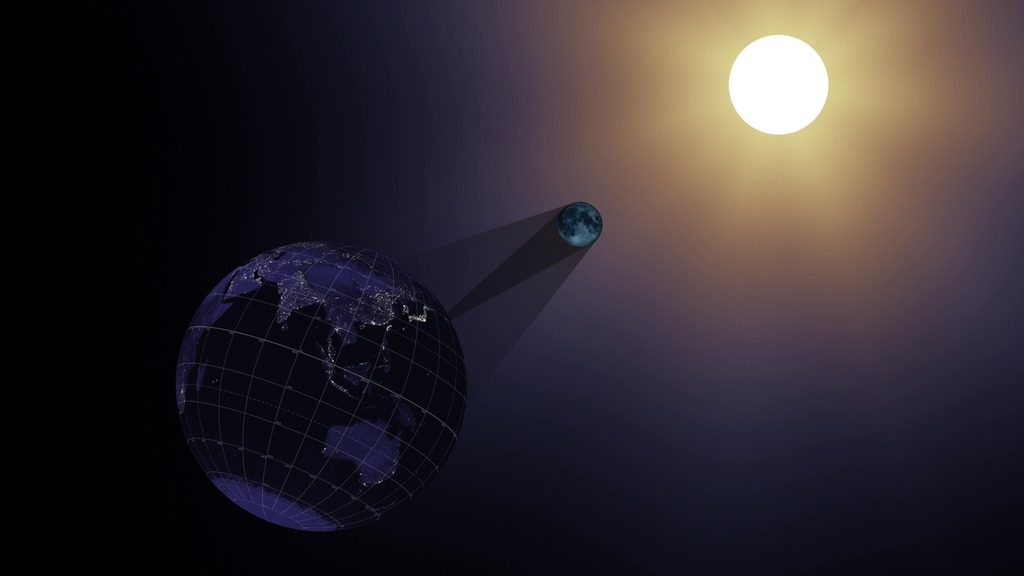
To find out exact times of the total solar eclipse for Nebraska communities, click here.
The 70-mile wide “path of totality” is the section of the earth where the moon will completely block the view of the sun for a short period of time and it will run diagonally across the state roughly from Fort Robinson State Park near Crawford to Indian Cave State Park near Shubert. There are 35 state park lands and 147 state wildlife management areas in this path, offering plenty of opportunities to witness this memorable spectacle in Nebraska’s wide open sky with low-light density. For further details on viewing the Total Solar Eclipse on Game and Parks Commission lands, go to this link.
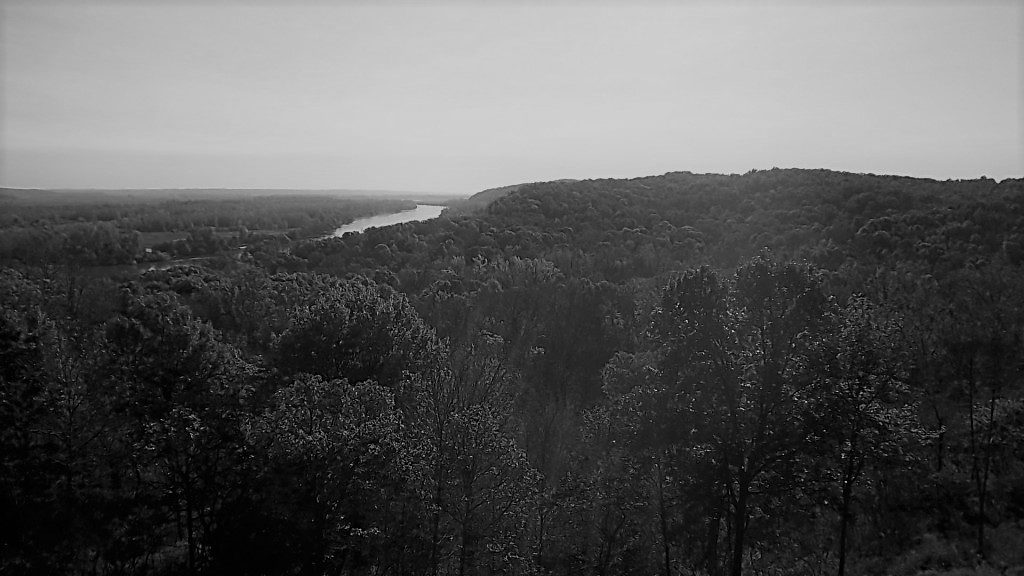
For those of us who already live here in the region, but have never seen an eclipse, this is the opportunity of a lifetime – to see the most beautiful thing on the planet, and not even have to board an airplane to get to it.
Bill Nye, referred to as the Science Guy who is scheduled to be at Homestead National Monument of America near Beatrice, NE for this cosmic event, calls it “exciting and profound.”
But, with all of the hoopla and build up about what is being called The Great American Eclipse, safety is a major concern. State, federal and local agencies will be organized and prepared for any eventualities. Ultimately though, keep in mind your safety is up to you and planning head will be paramount! That being stated, here are some important tips to help you plan, stay safe and be responsible during the upcoming total solar eclipse.
Eye Protection
Eye safety is critical when you’re preparing to view the total solar eclipse. Before and after the short window of time when the sun is fully eclipsed by the moon it is extremely dangerous to look directly at the sun. Two of the most popular ways to view an eclipse is by using an approved filter or with approved special filtered lenses— such as those in the “eclipse glasses” or handheld solar viewers — or projecting the image of the sun onto a screen.
NASA reminds eclipse viewers to be sure that the “ISO” (International Organization for Standardization) icon is on any eclipse glasses you buy. The glasses also must have the ISO reference number 12312-2.
In addition, the space agency warned glasses should not be more than three years old and should not have scratched or wrinkled lenses.
The Game and Parks Commission has printed a limited supply of 20,000 eclipse glasses to hand out to visitors at various state park lands that are in the path of totality, but eclipse viewers are strongly urged to acquire the special glasses in advance of their trip.
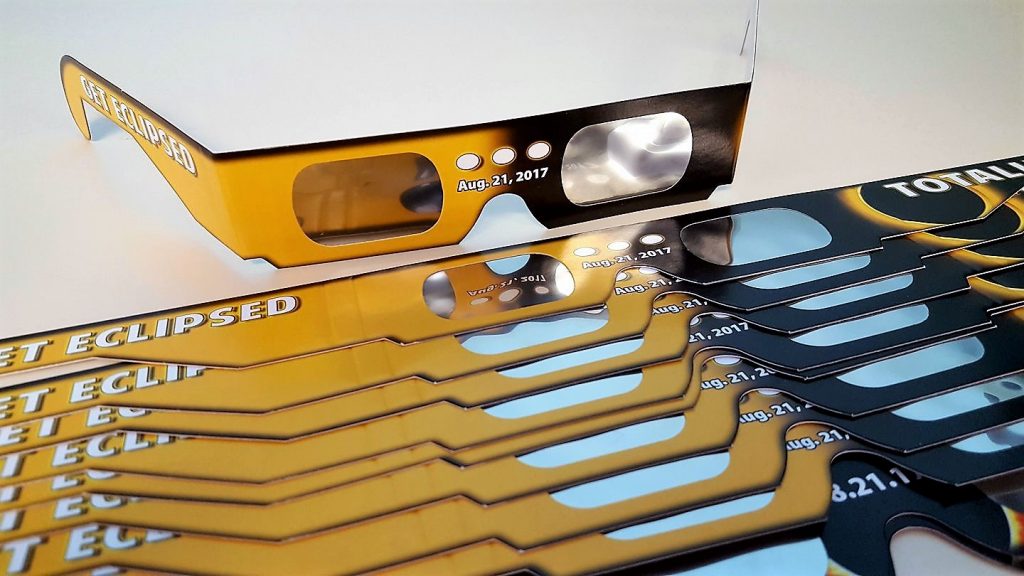
Traffic and Travel Notes
During a natural phenomenon like this, being out on the roads can be dangerous if you are not careful. Traffic volumes for the eclipse are unknown and lots of variables come into play (weather, actual people coming in rather than reserving a room or a campsite, other major events that may lead up to the eclipse). So, it is crucial to develop a plan in advance because traffic volumes may be much heavier than normal.
Weather conditions most likely will be hot and dry. Make certain that you have a full tank of gas and are prepared with the necessary supplies (cool water, healthy snack foods, sunblock, insect repellent, etc.) for high heat in the event of traffic delays. At low light, turn your lights on manually, too, do not rely on the automatic feature of your vehicle to engage your lights.
Eclipse chasers from out-of-state are reminded that they must have permission from the landowner before venturing onto private property, whether signs are present or not. Simply put: Parking your vehicle alongside a county road and then crossing a fence onto a pasture or field to watch the eclipse cannot be done unless access has been granted by the landowner.
Be aware of changes in traffic patterns across the state. That can be done by following @nebraska511, using our Nebraska511 app, or by using Waze. Please know that the Department of Transportation is planning on being available during the event. Its staff will deploy as necessary for traffic control should there be a need.
Safety On The Road
Safety on the road before, during and after the total solar eclipse will be quintessential! When it comes to the interstate and highways, do not stop along them! Rather, exit them to a safe location. It could be a very dangerous situation if you’re parked along the shoulder with traffic passing right next to you at a high rate of speed!
Also, motorists should be vigilant for pedestrians particularly on smaller local and rural roads. Folks may be crossing these areas and others where they normally don’t. It is not recommended to travel on the main path of the eclipse during the event if at all possible either.
Additionally, situational awareness will be key for safe driving. All motorists need to be keep any eye out for emergency vehicles as they respond to accidents, incidents, etc. and yield to them. Plus, here’s the biggie: Don’t be a distracted driver! Do not drive while on your mobile device or attempting to take photos or video during the eclipse.
State Park Guidelines
For those of you planning to visit a state park land in the path of totality during the eclipse, there are several points to remember. First, buy your required state park permit for your motor vehicle in advance to avoid long lines at entrances. Second, expect large crowds so familiarize yourself with the rules and specific information about the site you are visiting. Third, call ahead to staffed state park lands to check on parking and first-come/first-served campsite availability. Have an alternate plan in case your desired park or area is not available. Fourth, all lodging facilities and campsites that can be reserved are booked.
Fifth, check the weather forecast and monitor the weather conditions in the county or part of the county where the state park land is located as well as have a contingency plan to head to another park or area in case of cloudy skies.
And sixth, please note these regulations: Campfires are limited to established fireplaces, grills or fire rings (use of propane or gas stoves and charcoal grills is allowed), all pets must be kept on leashes no longer than six feet, and unless designated otherwise, there is no vehicle parking off-road.
State Wildlife Management Areas
Nebraska’s state wildlife management areas are open to those wanting to watch the total solar eclipse. These areas are managed by the Nebraska Game and Parks Commission’s Wildlife Division for the enhancement of wildlife habitat and for public hunting, trapping and fishing. Other activities are allowed such as nature study, bird watching, hiking, etc. Please note that these areas are primitive and lack modern amenities. Alcohol consumption, off-road travel and open ground fires are not permitted on state wildlife management areas, but camping can be done. All trash must be packed out and disposed of properly (or recycled).
Wildfire Prevention
Eclipse viewers should know fire risks and respect fire restrictions, such as burning bans. To prevent sparking a wildfire in Nebraska, campfires should be kept small and contained, and vehicles should never be driven or parked in dry grass or stubble.
Campers and picnickers may want to carry a small shovel and one gallon jug of water to maker certain that campfires and grill coals are properly extinguished.
Safety On The Water
Many people will be watching the Aug. 21st total solar eclipse from unobstructed views on or near expanses of water. Recreational boating traffic will be significant on lakes, reservoirs and rivers, and we at Game and Parks are preparing for big crowds on the water and at launch points. Planning ahead and arriving early are musts! Summer is already peak season for hitting local waterways. Add a unique, spectacular total solar eclipse to the mix, and it is sure to be a busy day on the water!
For safety, be sure that your boat has all of the required safety equipment on board and know the life jacket regulations. Proper lighting equipment will be advisable to use out during the time of reduced visibility. If you are in the path of totality, it will become dark as night during the full eclipse.
Boaters should not overload their vessels, observe boat ramp courtesy and exercise patience. While on the water, they also need to know exactly what the weather is and where they are located in the time leading up to the eclipse. They also should note water hazards that exist in and around their anchored locations. A safe distance must be kept from other boaters and water users. This will be even more important during the eclipse since visibility virtually disappears in the minutes around it. Just so you know, eclipse glasses are not be worn while operating watercraft.
If you’re planning to be along the shoreline of a water body to experience the eclipse, make certain that the everyone is closely kept track of for safety purposes, most notably children and those fishing, when the light begins to fade and total darkness arrives.
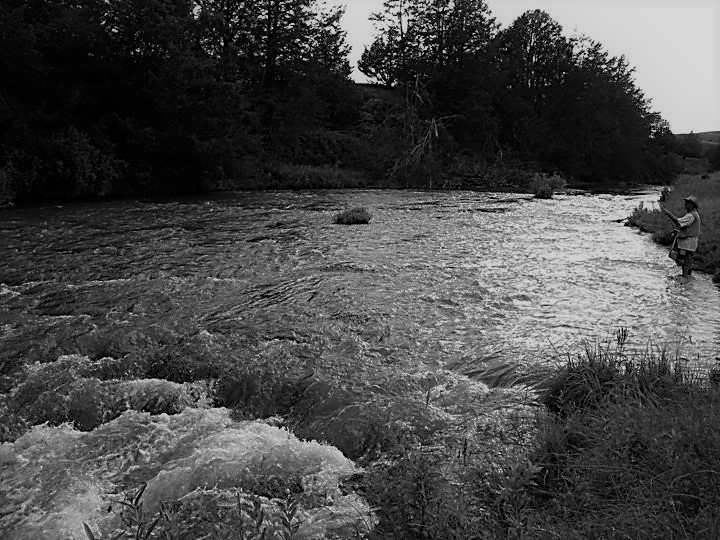
About the Animals
Total solar eclipses are rare and occur for a very short period of time making it difficult to identify specific effects on animals. Nevertheless, some research projects, and plenty of casual observations, have been conducted to at least document animal activity during various eclipses. Results suggest certain creatures may indeed alter their activities somewhat during the abnormal darkness, generally adopting behaviors associated with the night or an interruption in their daily routine.
So with this eclipse, songbirds are expected to fall silent as the Moon passes in front of the Sun and the darkening sky triggers night-time behavior. Nocturnal insects, such as crickets and cicadas, may begin their night calls at about that time and then cease shortly after the sun reemerges. Mosquitoes could become active with low light and little to no wind. Nocturnal animals like owls and bats could become more alert while farm animals and pets may look for a place to rest or sleep. Some wildlife may also pause, and appear more nervous and alert in response to the eclipse.
Before/During/After the Eclipse
Leading up to and following the eclipse, the shadows will look completely different. Around the 75% eclipse mark, shadows get sharper. At about 85% eclipse, you will be able to actually see Venus. Any breeze will usually dissipate and things will grow quiet. A 10 to 15 degree drop in temperature is not unusual.
Planning ahead cannot be emphasized enough! Pay close attention to news outlets and and social media updates prior to and the day of the eclipse for more information and safety considerations.
Experiencing the total eclipse outdoors is an activity that will stretch your mind and your legs. It’s not just about seeing the eclipse. This is a chance for children and adults to learn about space and the outdoors in a safe, responsible manner. It’s a chance to be part of one of the rarest celestial phenomenons in your lifetime in some of the prettiest natural destinations.
Resources
General Nebraska eclipse information and tourism: http://neclipse17.com/
Nebraska Game and Parks Commission: http://outdoornebraska.gov/eclipse/
Great American Eclipse: https://www.greatamericaneclipse.com/
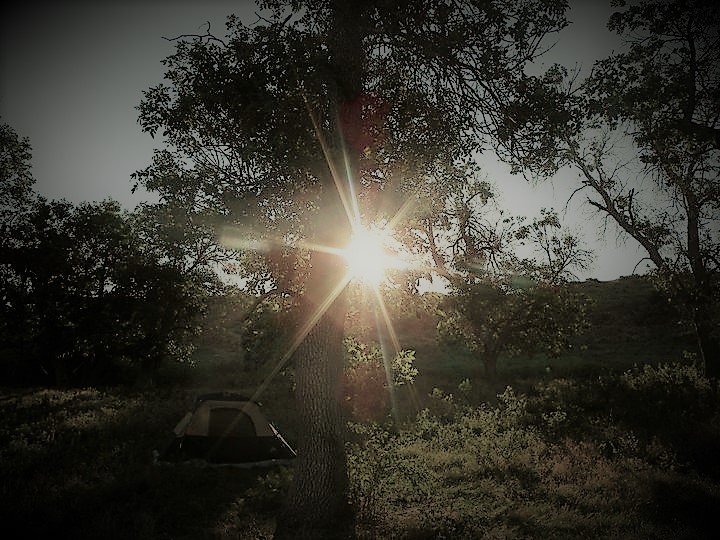
 Nebraskaland Magazine
Nebraskaland Magazine



